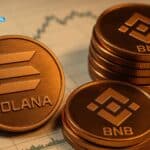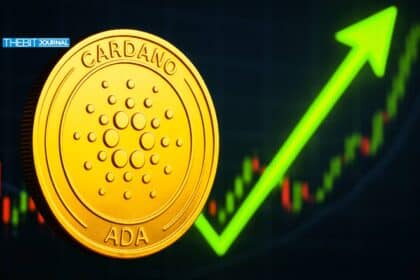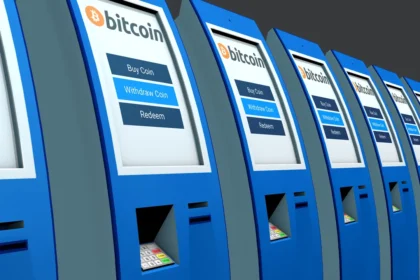Thailand’s Securities and Exchange Commission (SEC) is gearing up to launch a cutting-edge trading platform leveraging Distributed Ledger Technology (DLT). This initiative aims to empower securities firms to trade digital tokens, tapping into their expansive investor networks and embracing the burgeoning interest in tokenized assets.
Embracing the Digital Revolution
“The SEC is leveraging technology to enhance efficiency in the capital market by promoting an electronic securities ecosystem,”
stated Jomkwan Kongsakul, the SEC’s deputy secretary-general. She emphasized that new regulations are on the horizon to facilitate the issuance of electronic securities and streamline online purchases of debentures, which are medium-to-long-term debt instruments utilized by large corporations for fundraising.
This forward-thinking approach underscores Thailand’s commitment to integrating advanced technologies into its financial systems, ensuring the nation remains at the forefront of the digital finance revolution.

A Comprehensive Digital Ecosystem
The envisioned platform promises a holistic digital experience for bond trading across both primary and secondary markets. It will encompass settlement processes, trading activities, investor registration, payment procedures, and support for multiple blockchain networks, all adhering to interoperability standards. While specific blockchain networks were not disclosed, the emphasis on a shared ledger indicates a move towards a more interconnected and transparent financial ecosystem.
“In the future, there may be multiple chains for trade. Trading through DLT on all systems is connected by a shared ledger, which is expected to be completed soon,”
Kongsakul added, highlighting the SEC’s vision for a seamlessly integrated trading environment.
Diverse Digital Securities Offerings
The SEC’s initiative will introduce two distinct types of securities:
- Tokenized Traditional Securities: These are conventional securities that have been digitized, offering the benefits of blockchain technology while retaining their fundamental characteristics.
- Electronic Securities: Assets that are inherently digital, designed and issued in a digital-native format, representing the next generation of investment products.
This dual approach caters to a broad spectrum of investors, from those seeking the familiarity of traditional assets to those eager to explore innovative digital offerings.

Thailand’s Progressive Stance on Digital Assets
Thailand’s proactive embrace of digital assets is evident in its recent regulatory developments. In January 2024, the SEC lifted investment restrictions on retail investors for real estate-backed digital tokens, removing the previous cap of 300,000 baht per person per offering. This move aims to democratize access to digital investments and stimulate market participation.
Furthermore, the government is reportedly considering the issuance of a stablecoin backed by government bonds, reflecting its intent to integrate digital currencies into the mainstream financial system.
Looking Ahead
As Thailand continues to innovate within the financial sector, the SEC’s forthcoming DLT-based trading platform represents a significant leap towards a more efficient, transparent, and inclusive market. By embracing digital transformation, Thailand is not only enhancing its capital market infrastructure but also setting a precedent for other nations to follow.
Investors, both domestic and international, are keenly observing these developments, anticipating new opportunities in a rapidly evolving digital asset landscape. With a robust regulatory framework and a clear vision for the future, Thailand is poised to become a leading hub for digital finance in the region.
Summing Up
In conclusion, Thailand’s SEC is charting a bold course into the digital frontier, balancing innovation with regulation to foster a dynamic and secure financial environment. As the world watches, Thailand’s journey offers valuable insights into the future of finance.
Stay tuned to The BIT Journal and keep an eye on Crypto’s updates. Follow us on Twitter and LinkedIn, and join our Telegram channel to be instantly informed about breaking news!
FAQs
What is Thailand’s SEC launching in the crypto space?
Thailand’s SEC is introducing a DLT-based trading platform that allows securities firms to trade digital tokens, enhancing efficiency in the capital market.
What types of securities will be available on this platform?
The platform will support tokenized traditional securities (digitized versions of existing assets) and electronic securities (fully digital-native investment products).
How will this impact investors in Thailand?
Investors will gain easier access to tokenized assets, faster transactions, and a more transparent and efficient securities trading system.
Is cryptocurrency now legal for payments in Thailand?
No, the Thai central bank still bans crypto payments, but a Bitcoin payment sandbox is being tested in Phuket for foreign visitors.
References
Glossary of Key Terms
- Distributed Ledger Technology (DLT): A digital system for recording asset transactions in multiple places simultaneously, ensuring transparency and security without a central authority.
- Digital Tokens: Digital representations of value or rights that can be transferred and stored electronically, often used in blockchain ecosystems.
- Tokenized Assets: Traditional assets, such as securities or real estate, have been converted into digital tokens on a blockchain, facilitating easier transfer and ownership tracking.
- Debentures: Medium-to-long-term debt instruments issued by companies to borrow money, typically offering a fixed interest rate to investors.
- Blockchain Networks: Decentralized digital ledgers that record transactions across multiple computers, ensuring security and transparency.
- Interoperability Standards: Protocols and guidelines that enable different blockchain systems and networks to communicate and work together seamlessly.
- Tokenized Traditional Securities: Conventional financial instruments, like stocks or bonds, that have been digitized using blockchain technology to enhance liquidity and accessibility.
- Electronic Securities: Financial assets that are issued and exist solely in digital form, without any physical certificates, often utilizing blockchain technology.






























